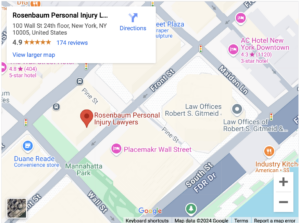Despite Advancements, Brain Injuries Still Rising Among Kids
When it comes to kids and brain injuries, the past few decades have brought both good news and bad.
Since 1980, traumatic brain injury deaths caused by traffic accidents have dropped by 40 percent, according to recent data from the U.S. Centers for Disease Control and Prevention. Similarly, between 1999 and 2010, brain injury fatalities among teens age 15 to 19 dropped by half.
Unfortunately, however, the overall rate of sports-related and recreational traumatic brain injuries has increased dramatically in recent years. According to the CDC, the number of TBIs caused by sports and recreational activities jumped by 60 percent between 2001 and 2009 among people under the age of 19.
Health officials push for new safety measures
The dramatic uptick in childhood TBI injuries in recent years has prompted federal health officials to push for changes in public policy aimed at improving safety and preventing head trauma among children and teens. Similar safety efforts to reduce traffic-related head trauma fatalities were successful.
As part of the new safety campaign, the CDC is collaborating with the NFL, the NCAA and other athletic organizations. The goal of the collaboration is to educate coaches and athletes about preventing sports-related head trauma, as well as recognizing and treating potential brain injuries when on-field head trauma does occur.
Brain injury basics
Traumatic brain injuries happen when the brain’s normal functioning is disrupted by a collision, jolt or blow to the head. Concussions and other types of TBI often affect athletes involved in contact sports like football, soccer and lacrosse. Other common causes of TBI in the U.S. include falls, car accidents and blunt impact.
The consequences of TBI can vary dramatically, from relatively minor to catastrophic. Although concussions are often referred to as “mild” brain injuries, they can in fact have very serious consequences – especially if they are not properly diagnosed and treated. In some cases, TBI can result in permanent disability or even death. Therefore, it is important for coaches, athletes and parents to be aware of the symptoms of TBI and get medical help right away if there is a chance that a brain injury has occurred.
TBI symptoms
Potential warning signs of concussion or other TBI include:
- Physical symptoms like headache, blurry vision, dizziness, nausea or lack of energy.
- Changes in sleeping patterns, such as sleeping more or less than usual or having difficulty falling asleep.
- Cognitive problems, such as trouble with thinking, concentrating or remembering new information.
- Emotional changes, such as increased irritability, sadness, nervousness or anxiety.
If your child exhibits symptoms of traumatic brain injury, be sure to get help from a medical professional right away.
Compensation for brain injuries
In some cases, people affected by concussions and other TBIs are able to receive monetary compensation for their medical bills, rehabilitation costs and other financial consequences of the injury. To learn more about seeking compensation for your child’s brain injury, contact a skilled personal injury lawyer in your area.
Contact the New York City Personal Injury Law Firm of Rosenbaum Personal Injury Lawyers for Help Today
If you’ve been injured in an accident in Manhattan, NY, and need legal help, contact our personal injury lawyers at Rosenbaum Personal Injury Lawyers to schedule a free consultation. We also serve in Brooklyn and the Bronx.
Rosenbaum Personal Injury Lawyers – New York City Office
100 Wall St, 24th Floor
New York, NY 10005
(212) 514-5007
Our firm is located near you. We have an office in NYC
Find us with our GeoCoordinates: 40.7051415,-74.0067386
Rosenbaum Personal Injury Lawyers – Bronx Office
1578 Williamsbridge Rd suite 3b
Bronx, NY 10461
(929) 447-2347
Our firm is located near you. We have an office in the Bronx
Find us with our GeoCoordinates: 40.8468944,-73.8483118
Rosenbaum Personal Injury Lawyers – Brooklyn Office
32 Court St #704
Brooklyn, NY 11201
(718) 550-3601
Our firm is located near you. We have an office in Brooklyn
Find us with our GeoCoordinates: 40.692948,-73.991038



